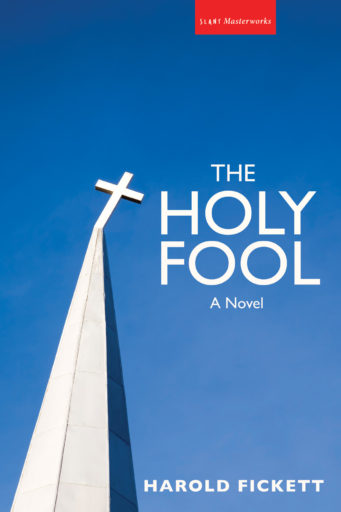

As revolutionary forces gather in the Lacandon jungle of southern Mexico in the fall of 1993, an idealistic American priest vanishes from his post in San Cristobal de Las Casas. The church, immersed in trying to negotiate a peaceful solution to the escalating conflict between wealthy landowners and poverty-stricken indigenas, remains strangely silent in the […]
| Hardcover | ISBN 9781639820047 | $32.00 |
| Paperback | ISBN 9781639820030 | $19.00 |
| eBook | ISBN 9781639820054 | $9.99 |
As revolutionary forces gather in the Lacandon jungle of southern Mexico in the fall of 1993, an idealistic American priest vanishes from his post in San Cristobal de Las Casas. The church, immersed in trying to negotiate a peaceful solution to the escalating conflict between wealthy landowners and poverty-stricken indigenas, remains strangely silent in the face of his disappearance.
When his sister, only thirty-four but already a hardened battlefield photojournalist, finds out what is going on, she flies to Central America to find him, applying for a job assisting a taciturn Dutch Mayanist in order to provide herself with a cover story. But as it turns out, he, too, is on a secret quest.
From the great pyramids of Tikal to the graceful palaces of Palenque to the shadowy guerrilla camps of the vast Lacandon, A Land Without Sin is a modern-day journey into the heart of darkness.
In A Land Without Sin Paula Huston has written a novel that’s wise and wry, tragic and tender, and altogether thrilling. Both moved and enthralled, I couldn’t stop reading.
ROBERT CLARK, author of In the Deep Midwinter and Love Among the Ruins
Huston treads where few writers dare, jumping fearlessly into the roiling cauldron of factious Central American politics, class, culture, and religions. No doubt it would have been easier to write a mere gloss, a panoramic report describing the horror of war, revolution, grinding poverty, and the inevitable human carnage. However, the lens through which Huston sees penetrates far deeper than a perusal of these surface wounds to examine the limits of family loyalty, faith, and the causes and cure of hatred. A Land Without Sin is a compelling narrative that leaves me both haunted and hungry for more.
GINA OCHSNER, author of People I Wanted to Be and The Russian Dreambook of Color and Flight
With some of the sheer excitement of H. Rider Haggard’s King Solomon’s Mines and the depth of soulful inquiry of Graham Greene’s The Power and the Glory, Paula Huston’s A Land Without Sin is a savvy look at the violent struggles in southern Mexico over the last quarter century and a vivid perspective on the hopes and perils of liberation theology. It is a poignant and splendid book.
RON HANSEN, author of Mariette in Ecstasy and Atticus
Eva is a hard case, slow to reveal anything but toughness; her absent brother is present in the narrative through his letters that Eva reads, so the emotional foothold offered readers is small at first. But the story deepens slowly, and its themes of war and family are profound and insistent, with tenacious hope eventually gaining a foothold. Huston reels the reader in slowly, with subtle characterization and small clues planted early. . . . Huston takes God, the burden of history, and religion’s big questions seriously.
Publishers Weekly
In a journey reminiscent of Conrad’s Heart of Darkness, Huston’s characters travel a variety of difficult roads, away from all that is known and toward something that brings each far more than any of them bargained for. The novel, which takes readers deep into a land close at hand but worlds away, is a thought-provoking yet familiar journey honoring family, friendship, and the many unexpected paths of self-discovery.
Booklist
Narrator Eva tells her story with bold determination and a brashly cynical voice that juxtaposes luminously the compassionate message of the novel. Paula Huston’s lush language, flowing dialogue, and the protagonist’s fresh narrative voice all weave together to form this Conradesque story of our faith in each other. . . . Each character is unique and whole, and each contributes to the world of the book. And this world—that of the Lacandon jungles of Central America and the Mayan pyramids Jan and Eva attempt to decipher—is both gorgeous and terrible, illustrated beautifully by Huston’s elegant prose.
ForeWord Reviews